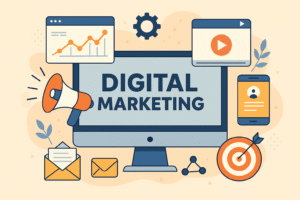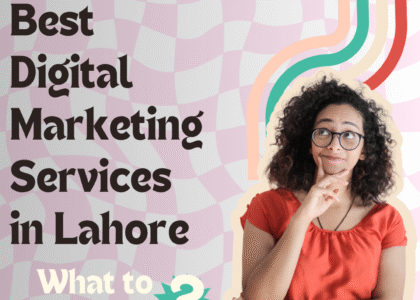Let’s be honest: if you work in SEO or digital marketing, you’ve likely felt the shift happening in Google’s search results lately. It’s not just another core update. Google’s Search Generative Experience (SGE) is rolling out, and it’s changing the way we approach content, visibility, and rankings.
I’ve been working in SEO for more than a decade now, and I’ve seen everything from Penguin to Helpful Content. But this—this is different. It’s not just a tweak to how Google ranks content. It’s a transformation in how search results are being built and how users interact with them.
So what exactly is SGE, and how should we adapt to it?
Let me break it down from firsthand experience.
What Exactly Is Google’s Search Generative Experience?
SGE is Google’s integration of generative AI directly into the search engine. When a user types a question or query, they don’t just see the traditional ten blue links anymore. Instead, they might get a block of AI-generated text at the top of the page that summarizes key answers from across the web.
This summary pulls information from multiple sources, aims to give a comprehensive overview, and is positioned above organic results—sometimes even above ads.
In simpler terms: Google is using AI to answer users’ questions for them. Before they even click on your website.
What This Means for Search Behavior
Now, here’s what I’ve noticed working on dozens of client accounts since SGE started testing.
People are clicking less. On some types of informational keywords, traffic is down—not because we lost rankings, but because users are getting their answers straight from Google’s AI-generated summary.
That doesn’t mean SEO is dead. It means we need to get smarter.
If you’ve been relying on shallow content that only scratches the surface of a topic, or publishing content just to hit a keyword count, you’re in trouble. AI can already do that better—and faster. But what it can’t do is offer real-world insight, depth, and trust.
Why This Matters for Digital Marketing Agencies
Whether you’re a digital marketing agency in Lahore, a content marketing agency in Pakistan, or running your own SEO services firm, SGE will affect how you generate traffic and leads.
1. Depth Over Surface-Level Content
If your blog post is a rephrased version of the top three search results, don’t expect it to stand out anymore. Google’s AI will summarize the basics. Your job is to offer something deeper—real examples, original data, client case studies, or expert insights.
2. Authority and Experience Matter More
SGE pulls content from authoritative sites. In fact, content that demonstrates experience (as in Google’s E-E-A-T: Experience, Expertise, Authoritativeness, and Trustworthiness) is more likely to be referenced in AI summaries or show up in the links below them.
3. Local SEO May Become Even More Valuable
While SGE summarizes general knowledge well, local intent still drives clicks. When someone searches for something like “best digital marketing agency in Lahore” or “affordable SEO services in Pakistan”, they’ll want to check websites, compare portfolios, and read reviews. Google’s AI can’t personalize that experience yet.
How SGE Affects SEO Strategy
Shift From Keyword Targeting to Topic Authority

Forget chasing one keyword at a time. Focus on building authority in an entire topic cluster.
For example, if your agency provides social media marketing services in Lahore, don’t just write one blog post on “how to grow on Instagram.” Build out a full content series:
-
Instagram growth strategies for local businesses
-
Case studies from Pakistani brands
-
Instagram vs. Facebook ad ROI comparisons
-
How your agency helped boost conversions through social ads
Make Your Content AI-Proof
That might sound ironic, but it’s possible. Here’s what I mean:
AI is great at summarizing general knowledge. But it can’t replicate your experience, real-world examples, client outcomes, and personal recommendations. So bring that into your content.
Use Structured Data and Clear Formatting
SGE relies on clarity. Use question-style headings, bullet points, and proper heading structure (H2 > H3 > H4) to make it easier for Google to parse your content.
Also, don’t forget to use schema where appropriate:
-
FAQ Schema
-
LocalBusiness Schema
-
Product or Service Schema
These help Google understand what your page is really about.
Common Mistakes to Avoid in the Age of SGE
Most websites won’t adapt. They’ll keep pushing out SEO content that used to work five years ago. But if you want to stay ahead, here’s what you should stop doing immediately:
-
Writing purely for keywords without considering search intent
-
Publishing content with no unique value or original voice
-
Ignoring author bios or content credibility
-
Avoiding multimedia (images, video, data visuals)
-
Skipping schema markup and proper HTML structure
What to Focus On Moving Forward
Here’s what I’m advising for marketing teams across Pakistan and beyond:
-
Build topic clusters, not just standalone posts
-
Double down on original content: research, interviews, commentary
-
Refresh and update your older content
-
Leverage your brand’s voice to stand out from AI-generated summaries
-
Invest in visuals, such as branded videos or data graphics
-
Prioritize speed, UX, and mobile optimization
Conclusion: SEO Isn’t Dead—It’s Just Growing Up
Google’s Search Generative Experience is a wake-up call. But it’s not the end of SEO—far from it.
If you’re providing digital marketing services in Lahore, or managing an online marketing company in Pakistan, the best thing you can do is evolve with the changes. Create content that truly helps people. Speak from experience. Deliver more than just information—deliver insight.
SEO is no longer about beating the algorithm. It’s about earning trust. And the brands that do that best will thrive—even in the era of AI-powered search.
Frequently Asked Questions
What is Google’s Search Generative Experience (SGE)?
It’s an AI-driven feature by Google that summarizes search results in a conversational, answer-style format at the top of the page.
How does SGE impact SEO traffic?
It can lower click-through rates for general informational content. But for original, high-authority content—especially local or service-based—it can actually help with visibility.
Should digital marketing agencies be worried about SGE?
No—but they should be ready to adapt. Agencies that offer real expertise, create unique content, and optimize for user intent will still thrive.
Is local SEO still relevant with SGE?
Absolutely. Google still relies on local signals and user behavior for local search. Queries with intent to buy, hire, or visit are still driven by traditional SEO elements.






